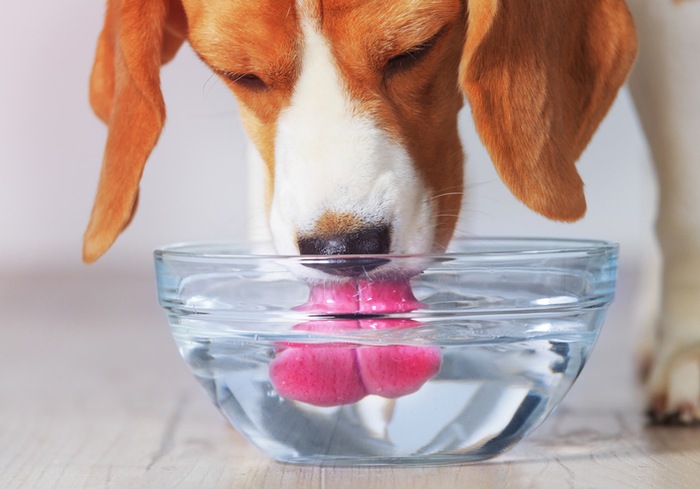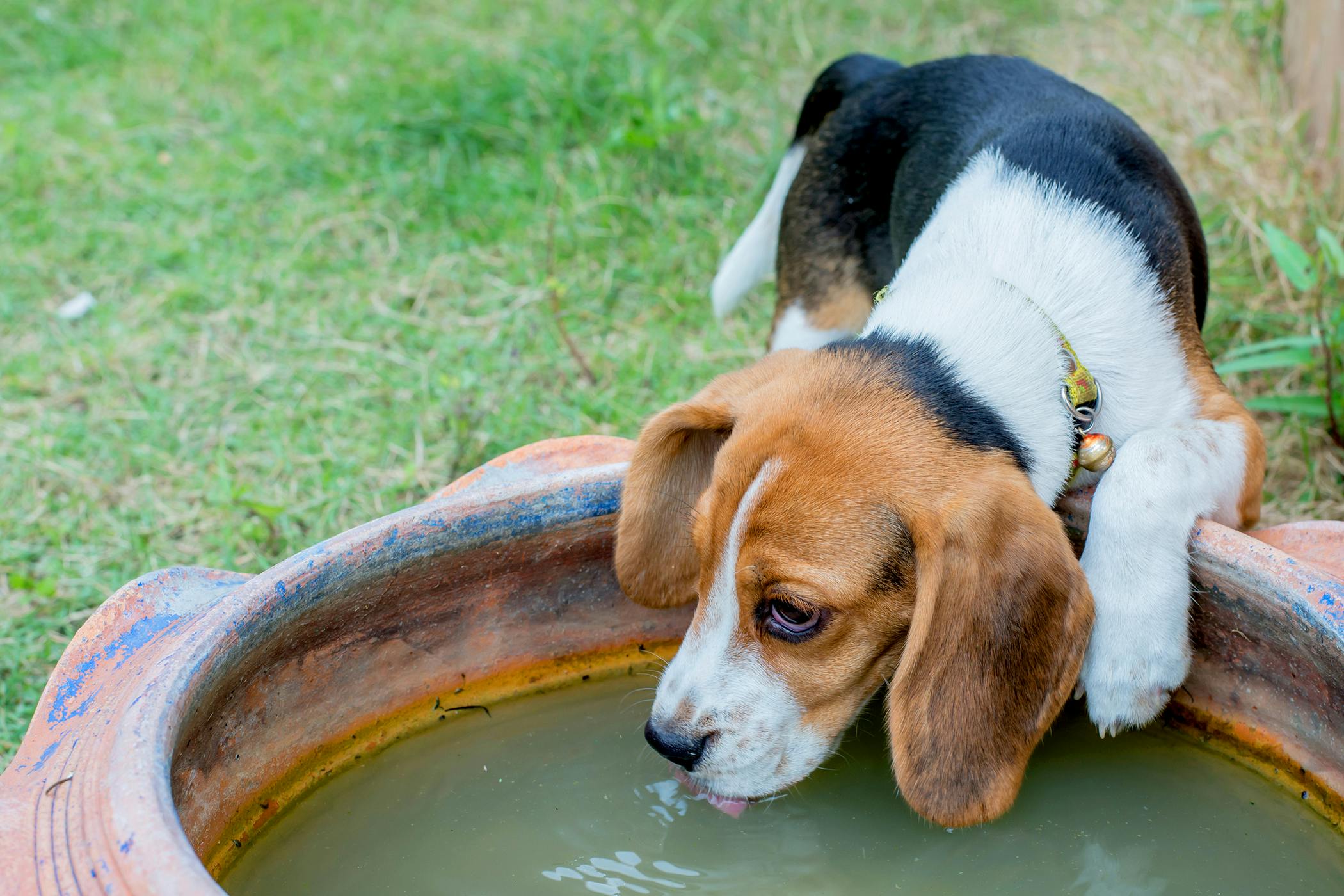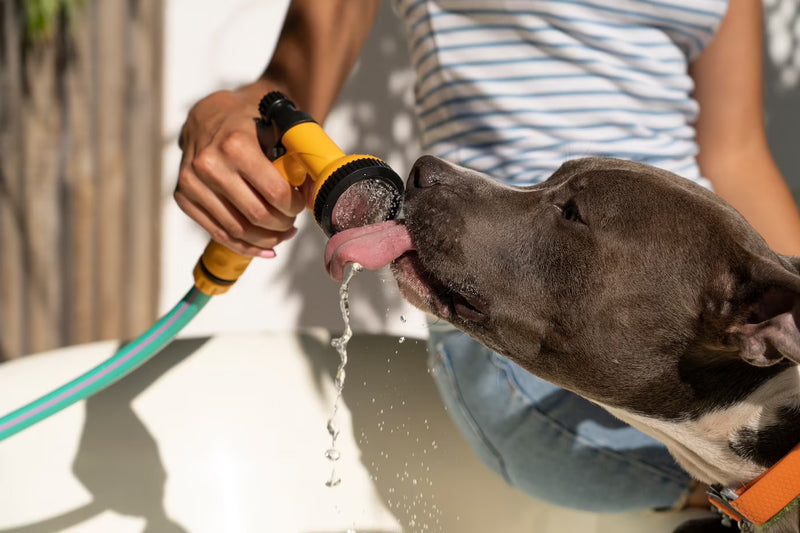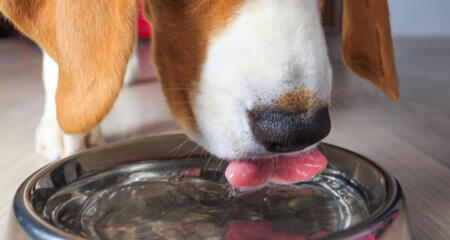If your dog is on insulin and still drinking a lot, it could be a sign of inadequate insulin dosage or an underlying health issue. Excessive thirst in a diabetic dog on insulin may indicate poor blood sugar control, diabetes complications, or unrelated health issues like kidney disease or liver problems.
It’s essential to consult with your veterinarian to adjust the insulin dosage and investigate any other potential health concerns to ensure your dog’s well-being. Monitoring your dog’s behavior, water intake, and blood sugar levels can help your veterinarian determine the appropriate course of action.
Ensuring your dog receives proper veterinary care and monitoring can help manage their condition and improve their quality of life.
Common Causes Of Increased Drinking In Dogs
If your dog is on insulin but is still drinking a lot of water, it’s important to identify the underlying cause. Excessive drinking, also known as polydipsia, can be a sign of various issues that need attention. In this article, we will explore some common factors that can lead to increased drinking in dogs.
Dehydration
Dehydration is one of the most common and easily treatable causes of increased drinking in dogs. When a dog is dehydrated, their body compensates by urging them to drink more water. This could occur due to several reasons, such as hot weather, excessive exercise, or inadequate intake of fluids. It’s crucial to ensure your dog has access to clean water at all times, especially during warmer periods and after physical activity.
Hot Weather
Hot weather is another factor that can contribute to excessive thirst in dogs. Just like humans, dogs tend to drink more water to cool down and regulate their body temperature during hot days. While some dogs naturally cope well with heat, others may struggle, especially brachycephalic breeds or dogs with thick coats. Ensure your dog has access to shade and fresh water to help them stay hydrated in hot weather.
Stress
Stress can have various effects on a dog’s behavior and health, and increased drinking is one of them. When dogs experience stress or anxiety, it can lead to increased water intake as part of their fight-or-flight response. Changes in routine, loud noises, or new environments can trigger stress in dogs. If you suspect stress may be the cause of your dog’s excessive drinking, try to identify and manage the stressors to help them feel more comfortable and alleviate the need for constant hydration.
Kidney Disease
Kidney disease is a serious condition that can affect a dog’s ability to properly filter toxins and regulate water balance within their body. As a result, dogs with kidney disease may drink excessive amounts of water in an attempt to compensate for their impaired kidney function. If you notice increased thirst along with other symptoms like frequent urination or changes in appetite, it’s essential to consult your veterinarian for a proper diagnosis and treatment plan.

Credit: www.halifaxhumanesociety.org
Understanding Insulin Therapy In Dogs
Purpose Of Insulin Therapy
Insulin therapy is used to manage and control diabetes in dogs. The purpose of administering insulin is to regulate the blood glucose levels and prevent hyperglycemia, a condition that can lead to numerous health issues in dogs.
How It Works
Insulin works by helping the body’s cells absorb glucose from the bloodstream, lowering the blood sugar levels. When a dog receives insulin, it allows the cells to utilize glucose for energy production, regulating the overall blood sugar levels within the body.
Monitoring Blood Glucose Levels
It is essential to monitor the blood glucose levels in dogs on insulin therapy regularly. This is accomplished by performing blood glucose tests at home using a glucometer or through regular veterinary check-ups. Monitoring ensures that the insulin dosage is appropriately adjusted based on the dog’s specific needs.
Possible Reasons For Increased Thirst Despite Insulin Therapy
When a dog is on insulin therapy but still exhibits excessive thirst, it can be concerning for pet owners. Despite the insulin treatment, the increased thirst may indicate underlying issues that need to be addressed. Understanding the potential reasons for this persistent symptom can help in managing the dog’s condition effectively.
Insufficient Insulin Dosage
Inadequate insulin dosage can lead to persistent high blood sugar levels in diabetic dogs, prompting excessive drinking to try to flush out the excess sugar. If the insulin dosage is not properly adjusted to match the dog’s needs, it can result in uncontrolled diabetes, causing persistent thirst despite insulin therapy.
Inappropriate Insulin Storage
Improper storage of insulin can render it ineffective. Exposure to extreme temperatures, incorrect storage, or expired insulin can lead to its reduced efficacy. This, in turn, can lead to inadequate control of blood sugar levels in the dog, contributing to continued excessive thirst despite insulin therapy.
Other Underlying Health Conditions
Underlying health conditions, such as kidney disease or Cushing’s syndrome, can also manifest as increased thirst in diabetic dogs. These conditions may exacerbate the impact of diabetes, leading to persistent thirst despite insulin therapy. It’s essential to assess the dog for any concurrent health issues that may be contributing to this symptom.

Credit: wagwalking.com
Tips For Managing Increased Drinking In Dogs On Insulin
If your dog is on insulin and still drinking a lot of water, it can be concerning. Excessive drinking, known as polydipsia, can be a symptom of various health issues in dogs, including diabetes. However, with proper management, you can help your furry friend live a comfortable life. Here are some tips to help you manage increased drinking in dogs on insulin:
Ensure Proper Hydration
One of the essential aspects of managing increased drinking in dogs on insulin is to ensure proper hydration. Make sure your dog always has access to fresh, clean water. Consider investing in an automatic water dispenser or placing multiple bowls around the house to encourage regular drinking.
Adjust Insulin Dosage
If your dog’s drinking habits have changed since starting insulin, it’s crucial to discuss this with your veterinarian. They may recommend adjusting the insulin dosage to maintain stable blood glucose levels. Regular monitoring of blood sugar levels is essential to determine the appropriate insulin dosage for your dog.
Consult With Veterinarian
Your veterinarian is your best resource when it comes to managing your dog’s health. If your dog is on insulin and still drinking excessively, schedule an appointment to discuss your concerns. Your veterinarian will perform a thorough examination, review your dog’s medical history, and may recommend additional tests to determine the underlying cause of increased drinking.
Consider Alternative Treatment Options
In some cases, alternative treatment options may be available for managing increased drinking in dogs on insulin. These options may include dietary adjustments, medication changes, or exploring other underlying health conditions that could be contributing to the excessive thirst. Your veterinarian will help guide you through these options and provide the most suitable treatment plan for your dog.
When To Seek Veterinary Assistance
If you have a dog that is on insulin and is still drinking a lot of water, it is important to know when to seek veterinary assistance. While it is normal for a dog on insulin to drink more water than usual, excessive drinking may be a cause for concern. This blog post will provide you with information on what to look out for and when to seek help from your veterinarian.
Excessive Drinking Persists
If you notice that your dog’s water consumption is consistently higher than normal even after starting insulin treatment, it may be a sign of an underlying issue. While increased thirst can be a side effect of insulin, it is essential to monitor the situation closely. If you find that your dog is still drinking excessively after a few weeks of insulin therapy, it is time to consult your veterinarian. They will be able to evaluate your dog’s condition and determine if further action is necessary.
Changes In Behavior
Besides increased water intake, changes in your dog’s behavior can also indicate the need for veterinary assistance. If you notice any significant alterations in their behavior, such as excessive lethargy, loss of appetite, or unusual bathroom habits, it may be a cause for concern. These behavior changes could indicate an imbalance in your dog’s blood sugar levels, which requires immediate attention from a veterinary professional. Do not hesitate to reach out to your veterinarian if you observe any concerning behavioral changes in your dog.
Worsening Of Symptoms
Monitoring your dog’s symptoms is crucial in managing their condition. If you observe a worsening of symptoms despite insulin treatment, it is important to seek veterinary assistance promptly. Signs of worsening symptoms may include increased frequency of urination, weight loss, persistent fatigue, and changes in their coat or skin. These symptoms could be indicators of an underlying health problem that needs to be addressed by a professional. Contact your veterinarian if you notice any worsening of symptoms to ensure proper medical intervention.
In conclusion, if your dog is on insulin and is still drinking a lot of water, it is important to know when to seek veterinary assistance. Pay close attention to excessive drinking that persists, changes in your dog’s behavior, and any worsening of symptoms. Remember, early detection and intervention can help ensure the well-being of your furry friend. Reach out to your veterinarian, as they are the best resource for evaluating and addressing your dog’s specific needs.

Credit: doggolovers.com
Frequently Asked Questions For My Dog Is On Insulin And Still Drinking A Lot
Q: Why Is My Dog Drinking A Lot Of Water While On Insulin?
A: Increased water consumption in dogs on insulin can be a sign of poorly controlled diabetes. When insulin levels are inadequate, glucose remains in the bloodstream, causing thirst. Regular monitoring and adjustments to insulin dosage are crucial to help manage this symptom.
Q: Is Excessive Thirst Common In Dogs On Insulin?
A: Yes, excessive thirst is a common symptom in dogs with diabetes. When blood sugar is high due to inadequate insulin, the body tries to dilute glucose by increasing thirst. If your dog is on insulin and still drinking a lot, it’s important to work closely with your veterinarian to regulate their insulin levels.
Q: Can Any Other Medical Condition Cause Increased Drinking In Dogs On Insulin?
A: While increased drinking is commonly associated with diabetes, it’s essential to rule out other potential medical conditions. Conditions like kidney disease, Cushing’s disease, or urinary tract infections can also cause excessive thirst. Consult your veterinarian to determine the underlying cause and appropriate treatment.
Q: Could My Dog’s Insulin Dosage Be Incorrect If They’re Still Drinking A Lot?
A: Yes, if your dog is on insulin and still drinking excessively, it’s possible that their dosage needs adjustment. Regular blood glucose monitoring and communication with your veterinarian are crucial for optimizing their insulin levels. Make sure to follow your veterinarian’s instructions and share any concerns or changes in your dog’s behavior.
Conclusion
If your dog is on insulin and still drinking a lot, it’s important to monitor their glucose levels closely. Excessive thirst can be a sign of improper regulation or underlying health issues. Consult with your veterinarian to ensure proper insulin dosage and address any potential complications.
Remember, a well-regulated insulin routine is crucial for your furry friend’s overall well-being. Stay vigilant and prioritize their health needs.



